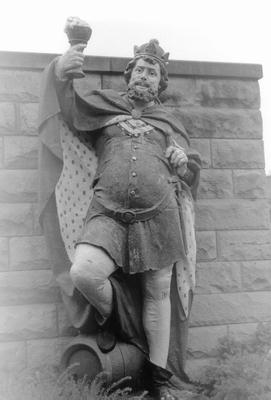The Nature Of Profits
Time for another economics post!
What are profits? Where do they come from? How are they created?
Lets take a simple model here. One employee and one boss. The employee, using his or her labor, creates an item for which they are paid X. The boss takes the item as it is (the boss adds no value to the item) and sells it for X+Y. The boss keeps the Y as profit.
This answers some of the questions - but not the first one. What are profits? The answer to this depends on a few things. Mostly, do you believe in objective value?
If you think items have an objective value, you believe that the more labor something takes to produce the more it is worth. This ignors skilled VS unskilled labor. Clearly, skilled labor is worth more per hour than unskilled labor. A master craftsman's hour is worth more than a journeyman's hour.
But all things equal, objective value can not be ignored. Here in lies the problem.
IF items have an objective value, which is the value of the labor and materials used to create the item. Now lets re-visit the example. The employee creates an item for which they are paid X for. The boss sells the item for X+Y. Clearly, the VALUE of the item is X+Y otherwise it would not sell. But if this value represents the labor used to produce it, and the person who produced it is only paid X - where does the Y come from?
The answer lies in explotation. The employee is not paid for the full value of their labor. The difference in the value of their labor and the amount they are paid is profit.
Some might call this difference theft. This would mean that profit is theft, unless the one making the profit is also the one doing the producing. An auto mechanic makes a profit, but then again the auto mechanic is also the one who fixes your car. You are paying him for the value of his labor. You can not rebuild your engine, he can.
But what if the mechanic buys a part for $10 and sells it to you for $15. Did he do anything to create that extra $5 of value? Hell no. That part of his profit is theft. He "stole" the $5 from whoever made the auto part, because that person was paid less than the value of the part. What "labor" did he put into buying that part? None. So should he profit from adding nothing to the part? When he installs it in your car (preforms labor) then he is adding value, and should rightly expect to be paid for that labor. After all - can you fix that car? If not, you have to buy his labor.
Yet mechanics mark up parts. The entire retail industry revolves around getting stuff, doing nothing to it, and selling it for more than they paid for it. Business runs off this concept.
Business as it runs now accepts that people are not paid for the value of their labor. We all accept this as "fact". How can you expect to be paid the full value of your labor? If this happened the company would not have any profit. Companies would run at the break even point. Never loosing money, but then never making any either.
And this can not happen, because then the people who add no labor value to anything could not sit back and rake in the millions.
The people at the top, who add no labor value to anything and simply profit from those who do add labor value to things might call this whole post communist dribble. But what else would you expect from people who have figured out how to live very well off the labor of others to say?













4 Comments:
HEY! I resemble that remark! No, but seriously, you have some valid arguments. But you also have to take into account operating expenses. If an employer has to pay the rent, the electric, the water, the other expenses to keep the shop open so that people come in and the workers have their jobs, then it's nothing as simple as selling a $10 widget for $15 and pocketing the $5. I wish it was. I soooo wish it was. I keep losing money in my one retail/service business though, so what do *I* know?
Ahhh - but you are forgetting that PEOPLE can add value to things with labor!
Corporations, being non-human things, can not add any value to anything.
So the boss, using his or her labor as "management" can expect to be compensated for that labor.
The company, the non-human corporation that adds no labor value to anything - would run at the break even point.
What would happen if everyone just stopped buying stuff they dont need?
Bush would pass laws mandating people to spend money or else face heavy fines and jail time.
You, being in Canada, will be OK. And I would be your new neighbor.
Post a Comment
<< Home